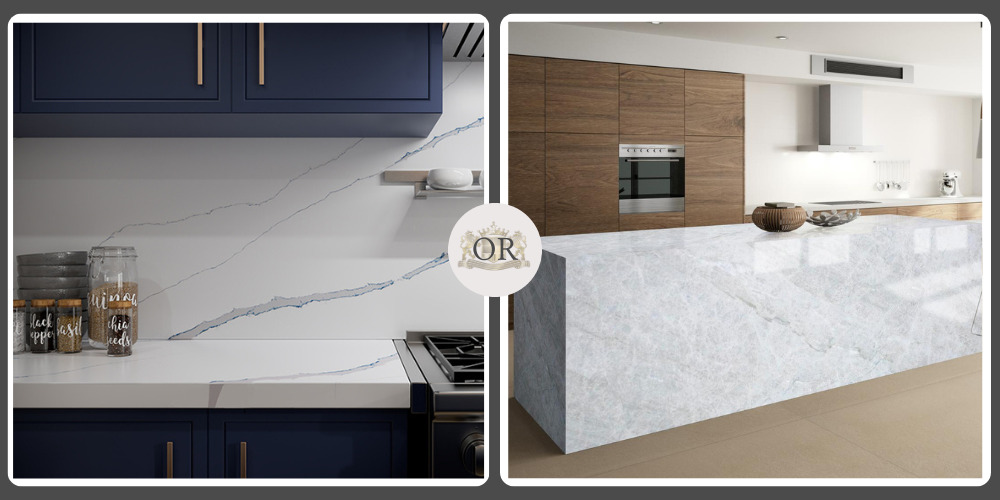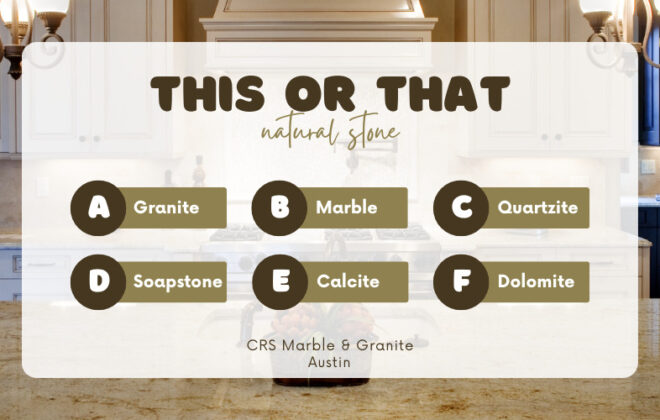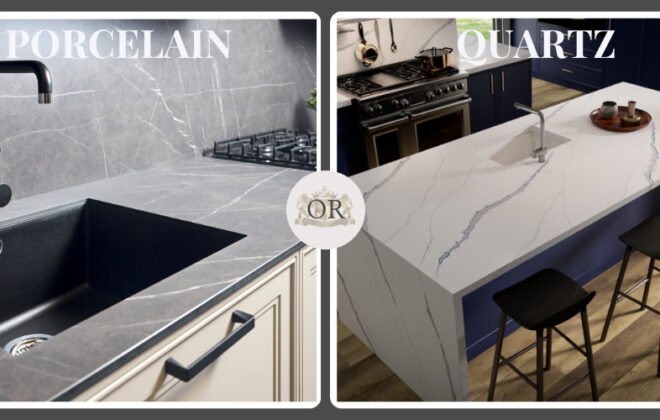Exploring the Differences Between Quartz and Quartzite Countertops
When it comes to kitchen and bathroom countertops, the choices seem endless. Among the myriad options, quartz and quartzite have gained significant popularity due to their durability, aesthetics, and functionality. Despite their similar names and shared origin, these materials possess distinct characteristics that cater to different preferences and needs. In this blog post, we’ll delve into the comparison between quartz and quartzite countertops, highlighting their unique features and helping you make an informed decision for your space.
1. Composition and Formation:
Quartz Countertops: Quartz countertops are engineered stone surfaces made primarily from natural quartz crystals, resin, and pigments. Manufacturers combine approximately 90-95% crushed natural quartz with resins to create a non-porous and resilient surface. This engineered process allows for a wide range of color options and patterns that can mimic the appearance of natural stone. CRS is proud to offer two premium quartz lines, reflecting our pride in quality and innovation. CRS quartz is our in-house line, carefully sourced from top factories worldwide, employing advanced manufacturing technology. On the other hand, Viatera is a division of LG, renowned for its electronics, and all Viatera slabs are proudly manufactured in Georgia, USA.
Quartzite Countertops: Quartzite is a natural metamorphic rock that starts as sandstone and undergoes heat and pressure transformations deep within the earth’s crust. The process fuses the sand grains together, resulting in an extremely hard and durable stone. Unlike quartz countertops, quartzite is 100% natural and does not undergo any artificial manufacturing processes. At CRS, we take immense pride in our extensive collection of natural quartzites, ensuring a diverse array of options to cater to the individual preferences of each and every customer.
2. Appearance:
Quartz Countertops: The manufacturing process of quartz countertops offers a broader range of colors and patterns compared to quartzite. This allows homeowners to achieve a consistent appearance throughout their space. The engineered quality of quartz countertops enables them to replicate the appearance of sought-after natural stones such as marble, all while requiring significantly less maintenance.
Quartzite Countertops: Quartzite’s natural formation gives it a unique and elegant appearance. Its veining and color variations are a product of the minerals present during its metamorphic process. While quartzite might not offer the same uniformity as quartz, many homeowners appreciate the one-of-a-kind beauty that each slab brings.
3. Durability:
Quartz Countertops: Quartz countertops are engineered to be highly durable and non-porous. They are resistant to stains, scratches, and impacts, making them an excellent choice for busy kitchens and bathrooms. The resin in quartz countertops can, however, be sensitive to heat, so using trivets or hot pads is recommended to prevent damage.
Quartzite Countertops: Quartzite is renowned for its incredible durability and resistance to heat. It is a suitable option for high-traffic areas where wear and tear are likely. Due to its natural hardness, quartzite is less prone to scratches and chipping compared to some other natural stones.
4. Maintenance:
Quartz Countertops: Quartz is easy to maintain as it is non-porous, meaning it doesn’t require sealing. Regular cleaning with mild soap and water is typically sufficient to keep it looking its best.
Quartzite Countertops: Quartzite countertops are also relatively easy to maintain. They should be sealed upon installation and resealed periodically to protect against staining. While not as porous as marble, quartzite is more porous than quartz and requires a bit more care.
In Conclusion:
Choosing between quartz and quartzite countertops depends on your priorities and aesthetic preferences. If you’re looking for a highly customizable, low-maintenance surface with a wide range of patterns and colors, quartz might be the right choice for you. On the other hand, if you appreciate the natural beauty, exceptional durability, and unique appearance of natural stone, quartzite could be the perfect fit.
Both options offer their own set of advantages, and understanding the differences will help you make an informed decision that aligns with your lifestyle and design aspirations. Whether you opt for the engineered elegance of quartz or the timeless allure of quartzite, both materials can elevate the look and functionality of your space for years to come.
Recent Posts
- Trends in Kitchen and Bathroom Design: Popular Stone Choices for 2023
- Choosing the Right Natural Stone for Your Countertops: A Buyer’s Guide
- A Guide to Keeping Your Quartz Countertops Sparkling Clean
- Porcelain vs. Quartz Countertops: Decoding the Differences
- The Timeless Elegance of Granite Countertops: A Comprehensive Guide
Categories
- Design (2)
- Granite (3)
- Inspiration (1)
- Natural Stone (2)
- Porcelain (2)
- Quartz (4)
- Quartzite (2)
- Style (1)
- Tips & tricks (3)




